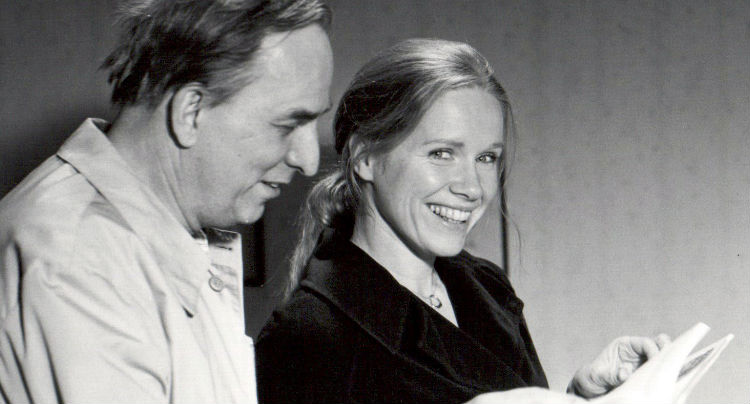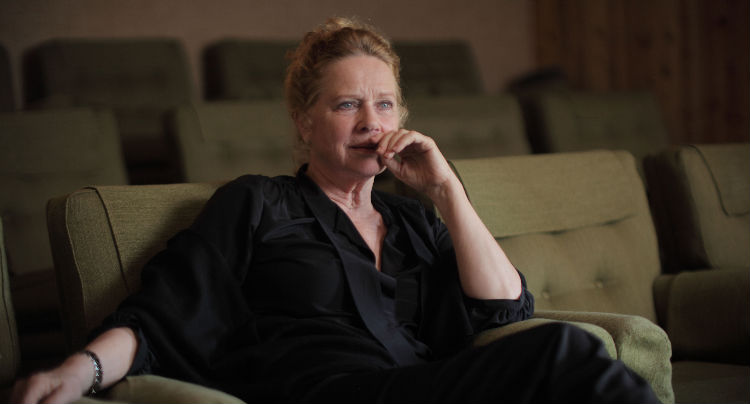
Sentimental, spiritual, and intimate, Liv & Ingmar is a joy, and Ullman's candor and sweetness is a treat.

Sentimental, spiritual, and intimate, Liv & Ingmar is a joy, and Ullman's candor and sweetness is a treat.
For those familiar with the films of Ingmar Bergman, Liv & Ingmar‘s greatest gift is that it adds a new layer of richness to the Swedish auteur’s legendary oeuvre. The documentary examines the extraordinary 42-year-long relationship with he and his muse, lover, and dear friend Liv Ullman, telling their story through heartfelt interviews with the actress set to carefully plucked footage of the many films they made together. The dramas of their sometimes abusive romance bled into their work constantly, a testament to the inextricable link between their on and off-screen lives.
The story begins on the island where Ullman and Bergman met and shot Persona. Ullman recites beautifully written passages from her autobiography, Changing, recalling how profoundly they inspired each other, leading to a passionate love affair (both were married). She remembers Bergman calling her “his Stradivarius”, a compliment she considers the kindest in her life. Still beautiful in her 70’s, she speaks of Bergman with deep adoration and warmth, despite the fact that their romance eventually soured due to Bergman’s destructive behavior. Even as she walks us through (to the finest detail) how cruel he could be to her, there isn’t an inkling of resentment to be read on her face.

When the two moved in together on Faro Island, Ullman felt suffocated by their painfully quotidian lifestyle; he’d “write his masterpieces” while she meandered around the island, which she describes as “cold” and “dark”. The tension between them spilled over into their productions, with Bergman exacting a covert form of torture on his muse. Ullman recalls him being so upset with her during the filming of a scene from Shame that he forced she and co-star (and most notable Bergman collaborator) Max Von Sydow to wear thin jackets in the freezing cold while he stood over them, bundled up under three layers of coats. Bergman is painted as an angry absentee lover for much of the story, though Ullman’s boundless love for him keeps his image a safe distance from villainy.
Director Dheeraj Akolkar shows clips of Ullman’s various characters in Bergman’s films getting physically and verbally abused as she shares her anecdotes, highlighting the strong connection between life and art. The clips from Persona, The Passion of Anna, and others, are wisely and carefully intercut into the film, all feeling appropriate. Akolkar does almost nothing to delineate the significance and impact of their work on cinema as a whole, which is confusing, as it hinders the universality of the film. The film would have been more approachable to a wider audience with this context.

The film is divided into chapters–“Love”, “Loneliness”, “Rage”, “Pain”, “Longing”, and “Friendship”–matching Ullman’s recollections perfectly while also mirroring Bergman’s literary style. The once combative lovers ultimately learned to become treasured friends, which is how they left each other. In one of several voice-over recitations of personal letters written from Bergman to Ullman (read by Samuel Fröler), he summarizes their complex relationship in a most fascinating and lyrical way: “We have an ability to affect each other. We make each other alive. It doesn’t make a difference if it hurts.”
There’s a lilting, summer breeze quality to the imagery and score that gives off a feeling of acceptance and peace, much like the attitude Ullman exudes. Sentimental, spiritual, and intimate, Liv & Ingmar is a joy, and Ullman’s candor and sweetness is a treat. By examining the beautiful complexities of their relationship, the film gifts us new eyes with which we can see works like Scenes From a Marriage in a new light.